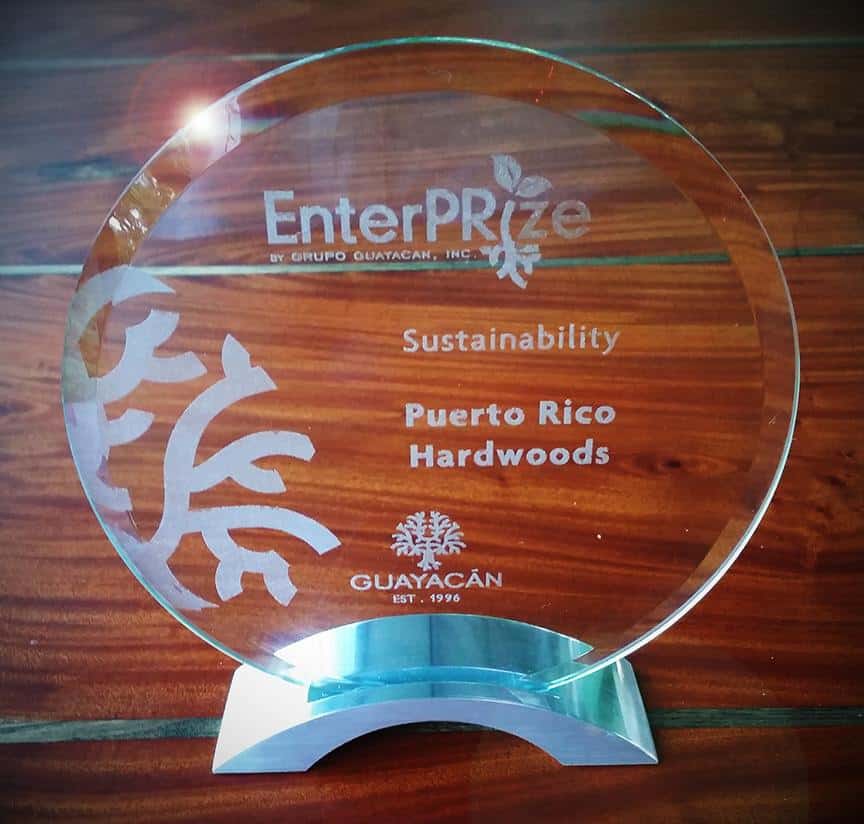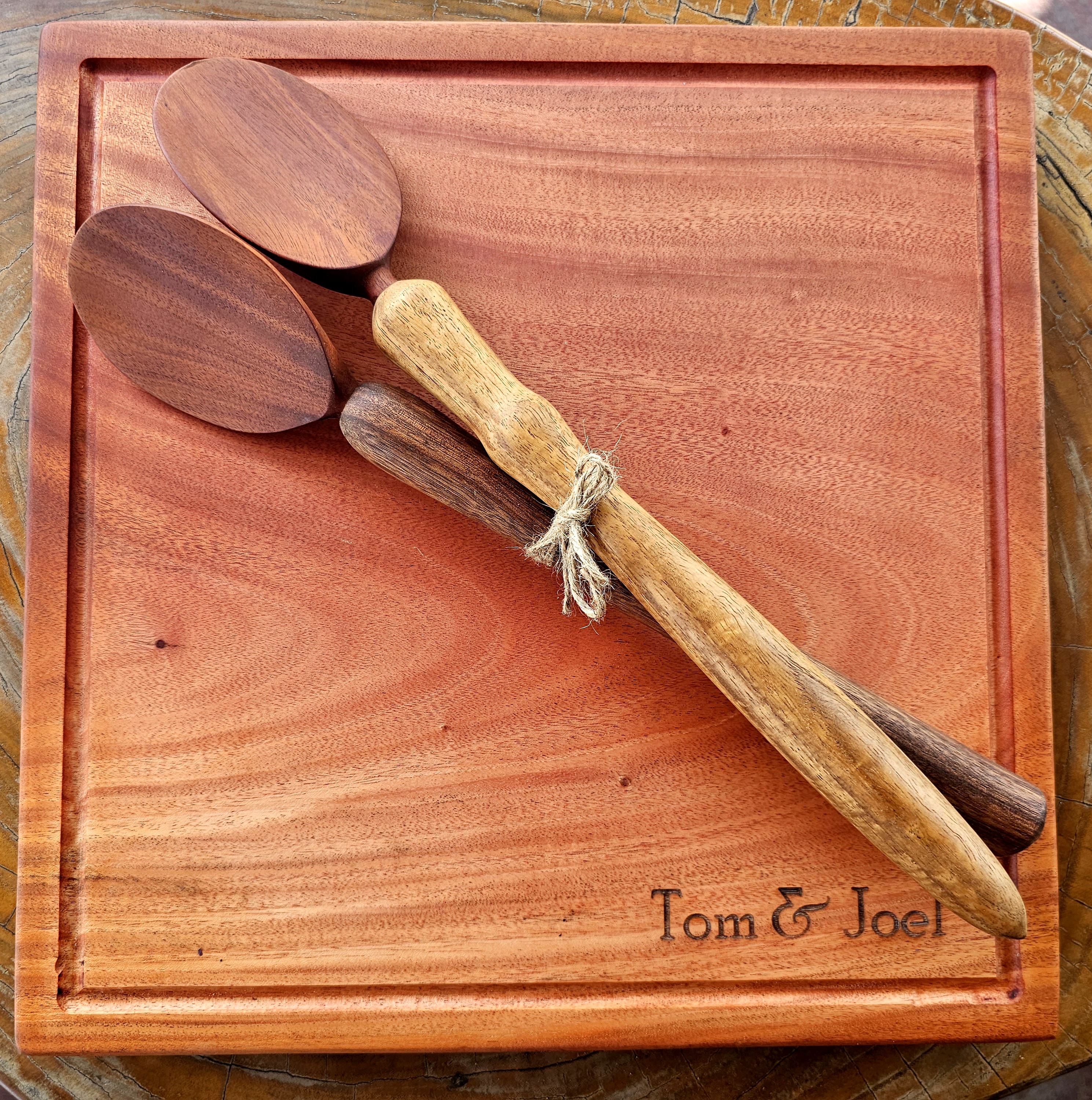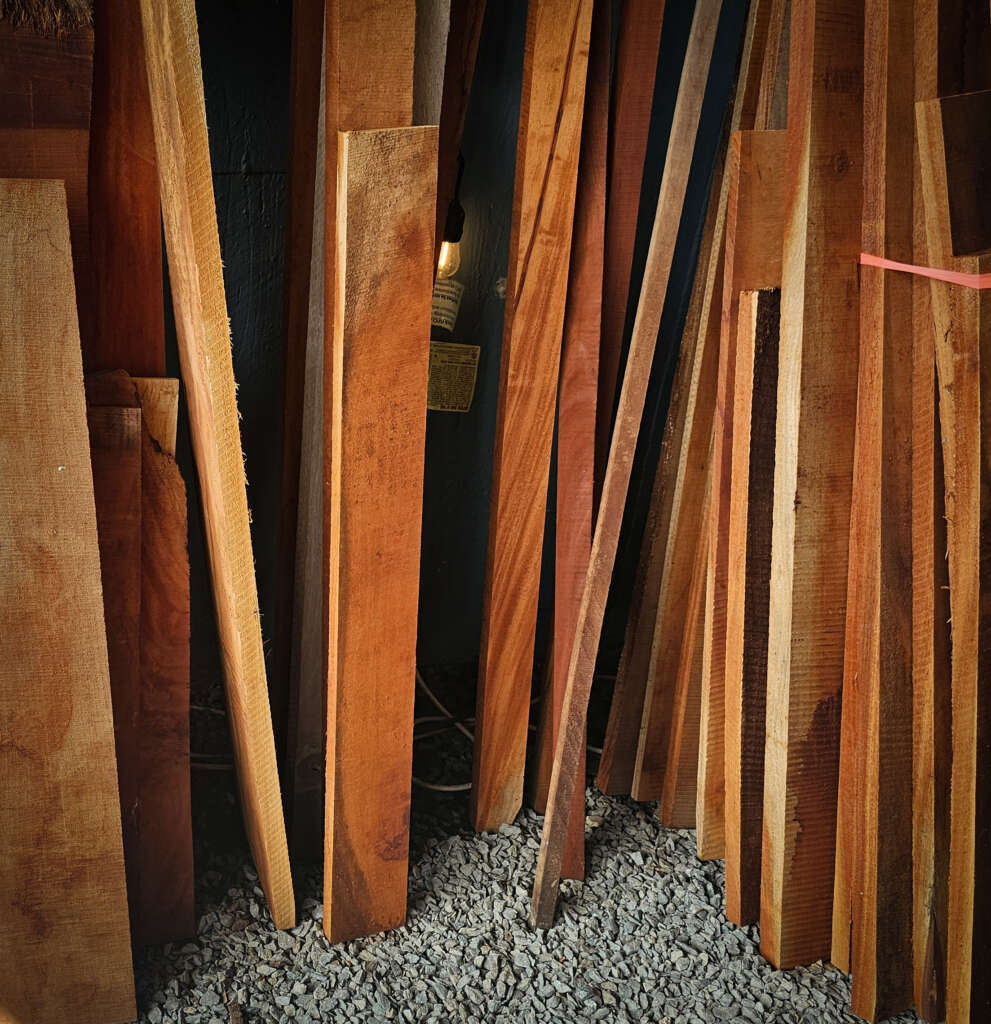ABOUT PUERTO RICO HARDWOODS
A vision rooted in sustainability: Puerto Rico Hardwoods (PRH) emerged in 2015 with a mission to transform waste into opportunity, stemming from the need to repurpose wood refuse from government and commercial tree removals. Instead of letting valuable timber end up in landfills, PRH processes and salvages it, creating high-quality wood products and reducing environmental waste. By promoting the sustainable use of local resources, PRH plays a critical role in preserving global rainforests and encouraging ecological responsibility.
Where innovation meets conservation: PRH operates at the intersection of sustainability and innovation, turning previously discarded wood into a renewable and recyclable resource. The company’s efforts are historically anchored at Las Casas de la Selva, in the municipality of Patillas, and adjacent to the Carite State Forest in Puerto Rico, which has been a hub for sustainable forestry since the 1980s. Las Casas de la Selva, founded by the Institute of Ecotechnics, laid the groundwork for sustainable forestry practices, including the planting of 40,000 hardwood trees to rehabilitate degraded forestland.
A legacy of dedication: PRH builds upon a legacy of 30 years combined, of sustainable forestry efforts by Las Casas director Thrity ‘3t’ Vakil, and technical director Andrés Rúa González. As founders and former directors of the Agroforestry Development Advisory Council (CADA), Vakil and Rúa have long championed the reduction of vegetative waste and the intelligent use of Puerto Rico’s natural resources. CADA, founded in 2013, became a pivotal platform for addressing the widespread waste of wood resources on the island, advocating for innovative recycling and reuse methods that led to the establishment of PRH.
The groundwork for PRH was also supported by the education and research initiatives of Tropic Ventures Research & Education Foundation, which received a $21,000 grant in 2011 from the Puerto Rico Department of Natural and Environmental Resources (DNER) to assess the island’s wood and non-wood forest products. This project laid the foundation for Nuestra Madera, a comprehensive database documenting Puerto Rico’s timber resources and craftsmanship. Nuestra Madera became the owner of a collection of 120 different hardwoods of Puerto Rico, thanks to Professor. J.M Mutt.
Milestones in sustainable wood utilization:
- Hurricane Maria response: After Hurricane Maria in 2017, PRH turned disaster into opportunity by salvaging thousands of fallen trees, demonstrating the resilience and utility of Puerto Rico’s hardwoods. Hurricane María was the most catastrophic natural disaster in Puerto Rico’s modern history. A Category 4 storm on the Saffir-Simpson scale (Pasch, 2017), María significantly disrupted the island’s forest ecosystems (Resetar et al., 2020). The hurricane uprooted countless trees, stripped forest canopies of foliage, and left behind vast amounts of litterfall (Hosannah et al., 2020). Early estimates indicate that María caused severe damage or mortality to 23–31 million trees (Feng et al., 2018). Almost 60% of all debris collected in the aftermath of hurricane Maria was vegetative material.
- Historical salvage projects: In 2015, PRH salvaged 23 Puerto Rican Mahogany Hybrid trees (Swietenia x aubrevilleana), from the area around Arroyo Cemetery, preserving their cultural and historical significance while preventing their disposal in landfills. This project was conducted with permits from DNER, municipal permits, and showcased PRH’s commitment to ethical forestry.
Recent grants and investments:
- $175,000 USDA Wood Innovation Grant: Supports the acquisition of advanced equipment, including a stationary sawmill, wood edger, and dehumidification kiln. This will increase the production of responsibly harvested tropical wood in Puerto Rico, stimulating the local wood market and contributing to sustainable forest management.
https://www.woodworkingnetwork.com/wood/puerto-rico-hardwoods-gets-federal-subsidy-sustainability-project - $46,395 Department of Economic Development and Commerce (DDEC) Incentive Grant: Funding for essential equipment such as a 60hp tractor and wood kiln. These tools enhance operational efficiency, supporting the growth of small and medium-sized businesses while promoting job creation and retention in Puerto Rico.
- $149,500 Community Development Block Grant- Disaster Recovery (Re-Grow PR): This grant allowed PRH to acquire a Volvo 220EL excavator, greatly improving log handling, tree harvesting, and yard organization. It contributes to agricultural sector revitalization post-Hurricanes Irma and Maria, fostering resilience and sustainable practices.
- $24,283 Solar Energy Grant: Provided funding to expand PRH’s solar energy system, reducing dependency on diesel and promoting renewable energy use. This contributes to long-term energy savings and supports Puerto Rico’s transition to greener, more sustainable business operations.
From salvage to craftsmanship: PRH’s efforts extend beyond wood recovery. The company supports artisans and craftspeople, supplying high-quality tropical hardwoods like mahogany, almond, teak, pterocarpus, guanacaste, saman, albizia, and majo azul for fine furniture, wood products, and construction. PRH’s collaborations encourage a skilled artisan community, revitalizing local economies and promoting environmental stewardship.
Economic and environmental impact: Puerto Rico imports wood products worth over $100 million annually. Puerto Rico Hardwoods is tackling this reliance by:
- Establishing a local supply chain for responsibly harvested tropical woods.
- Reducing wood imports while creating jobs in harvesting, milling, drying, and product manufacturing.
- Promoting training and certification programs in forestry and woodworking to sustain a knowledgeable workforce.
A future of growth and sustainability: By 2025, PRH aims to become a leader in the local and export wood markets. With new investments in sawmills, kilns, permit acquisition, and training initiatives, the company’s expansion will further its mission of ecological and economic sustainability. PRH continues to work closely with local and international organizations to ensure compliance with environmental standards and enhance the value of Puerto Rico’s unique natural resources.
PRH invites you to partner in creating a sustainable forestry future. We are actively seeking investors. Together, we can:
- Reimagine wood waste as a valuable resource.
- Advance renewable energy and sustainable practices.
- Expand educational opportunities in forestry and woodcraft.
Explore more about Puerto Rico Hardwoods and how you can contribute to this transformative journey. Visit us at our woodyard in Caguas or reach out to learn more about our projects, products, and partnerships.
www.prhardwoods.com
https://www.facebook.com/prhardwoods

L-R: CEO Andres Rua: andres@prhardwoods.com,
Business partner Ashley Epting,
President 3t Vakil: 3t@prhardwoods.com
CFO Thomas Marvel: tom@prhardwoods.com



